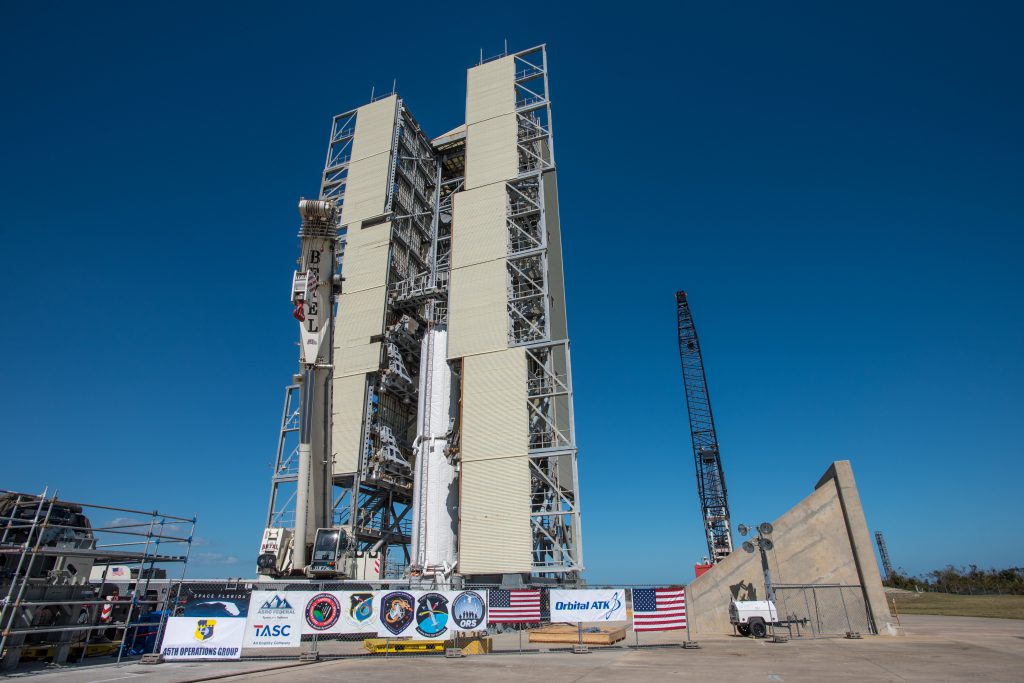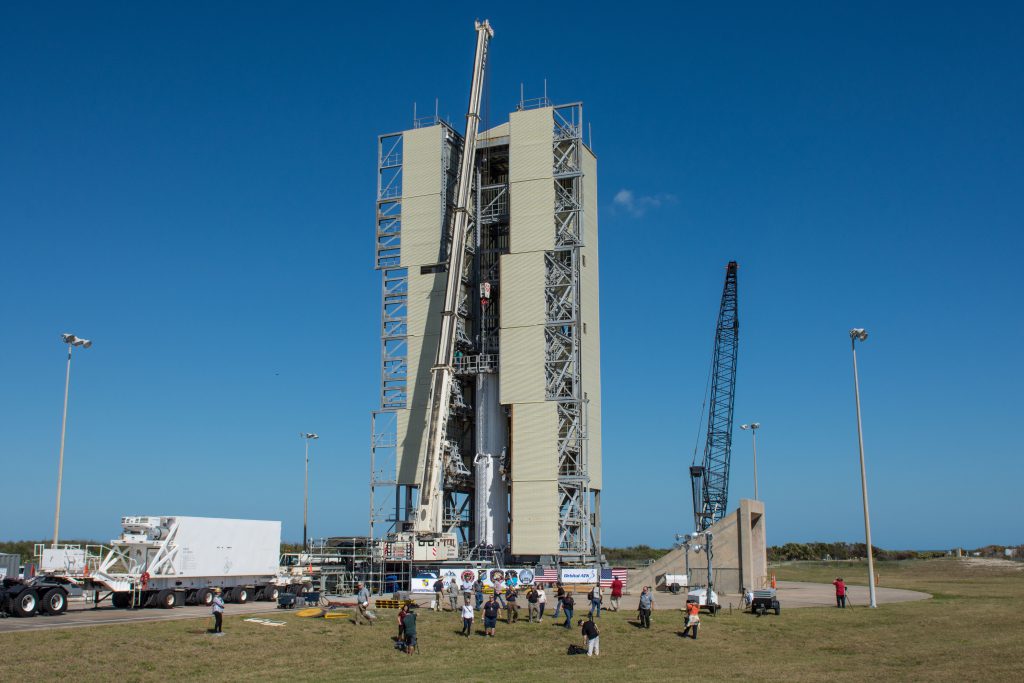
CAPE CANAVERAL — Three inert Peacekeeper missile stages have been stacked at Cape Canaveral’s Complex 46 pad, demonstrating the techniques that will be used to assemble a Minotaur 4 rocket to launch an experimental space surveillance satellite this summer.
Decommissioned Peacekeeper missiles form the basis for Minotaur 4 rockets, operated by Orbital ATK, and will deliver the majority of power to launch a small spacecraft, called SensorSat, into Earth orbit.
Launch is tentatively planned for July 15 at roughly 1 a.m. EDT (0500 GMT).
Known as the Operationally Responsive Space-5 mission, or ORS-5, it will be the first Minotaur launch from Cape Canaveral.
Officials say the Cape was chosen as the launch site because it is best suited to fly the special five-stage Minotaur 4 into the desired equatorial orbit.
The payload will circle the planet in low-Earth orbit to scan the valuable region of space 22,300 miles high — the geosynchronous orbital belt — to spot debris and warn against collisions.
Geosynchronous orbit is where communications satellites, weather observatories and key reconnaissance platforms reside because that altitude allows the craft to fly continuously above the same part of the globe.
Many of the details about ORS-5 remain classified. But SensorSat will test technologies and reduce the risk for future space situational awareness missions.
The launch pad hosting this mission is Complex 46, a former Trident missile test site built in the 1980s for the U.S. Navy, then converted to spaceflight users in the 1990s and employed by Lockheed Martin to launch two Athena boosters including NASA’s Lunar Prospector.
Space Florida, an arm of the state, now oversees the complex for commercial customers. It will be the first launch from the pad, which is on the easternmost tip of the Cape, in 18 years.
Five previous Minotaur 4 rockets have launched from Kodiak Island in Alaska and Vandenberg Air Force Base in California since 2010.
The entire Minotaur family has conducted 25 missions since 2000, all successfully. Cape Canaveral will join Kodiak Island, Vandenberg and Wallops Island in Virginia as sites that have hosted launches.
Mission planners selected the Cape to launch SensorSat due to the plane change required en route to achieve the targeted 375-mile-high circular orbit at 0 degrees inclination. A Wallops-based launch could not reach such an orbit with Minotaur 4, officials said.

The successful pathfinder operations at Complex 46 were completed Sunday and punctuated with a photo op for the news media. The inert stages will be destacked beginning Monday.
The real rocket for ORS-5 will be stacked beginning about three weeks before launch. That will be followed by a week-and-a-half of pre-flight testing.
Minotaur 4 will blast off on 500,000 pounds of thrust, propelling the 193,000-pound, 78-foot-tall rocket on a half-hour trip to orbit.
After the three Peacekeeper motors burn, two commercial upper stages deliver the final pushes to reach orbital velocity and then change planes to obtain the correct inclination for ORS-5.
Quelle: SN
